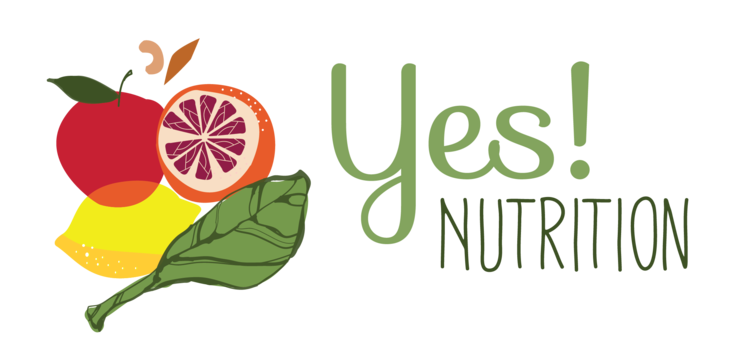What Makes a Dessert Healthy?
What makes a dessert healthy? Can I have dessert when I'm trying to eat healthy? How can I make my favorite dessert healthier?
These are common questions I hear voiced by my patients during 1:1 Nutrition Counseling on their quest to look and feel better about their bodies and their health. The fact is, there are indeed some simple swaps we can make to desserts to improve their nutrient-density (more on that below!).
But, the real truth is, the experience and pleasure that comes from eating a dessert also goes way beyond what macronutrients and micronutrients are included on the dessert dish.
Here's how I help my patients evaluate whether or not a dessert is healthy:
A healthy dessert is one that delivers the flavors, textures, and aromas you love.
Sweet and tart, warm and cozy, or rich and salty...what flavors do you crave when it comes to dessert? Do you prefer something smooth or liquid, something gooey, a bite that's crunchy, or a texture that's chewy? Does the aroma of the dessert satisfy you? A healthier dessert for you is one that delivers the flavors, textures, and aromas you love. If your dessert doesn't satisfy the needs of your senses, it's likely that you'll leave the eating experience unfulfilled.
A healthy dessert satisfies what you really want.
Is the dessert at hand something that you really want? If so, it might be a healthy move for you to enjoy it. But if not, then it's best to skip. If what you're really looking for is stress relief, extra energy to curb feeling sleepy, or emotional coping to curb tension, then food may or may not provide what you're looking for. Are you feeling pushed to eat dessert since someone else made it or since it is free in the break room at work? Consider the "why" behind your selection - are you eating dessert to fulfill your inner food desires or for other reasons? That's not to say that you can never enjoy some ice cream after a stressful day -- it just means that you should consider and acknowledge what the intention really is.
A healthy dessert is one that is savored.
It's not eaten in a rapid fashion. It's not consumed mindlessly in front of the couch or quickly inside the car. For a dessert to fit the bill of "healthy" in my book, it's one that is eaten slowly, one where you pause to really taste the food, and one where you savor every delicious bite.
A healthy dessert includes better-for-you ingredients.
Because "healthy" means healthy for the mind and spirit (all of that above, ya'll) AND healthy for the body, as a Registered Dietitian Nutritionist, I'd be remiss if I didn't address that a healthy dessert also includes nutrient-dense ingredients. It excites me to see desserts that are made with whole food ingredients like vegetables and fruits, when they use whole grains instead of refined flours, when they utilize fiber-rich foods like beans, when they feature nuts or seeds, when they offer healthier oils, and when they're free from artificial ingredients including artificial sweeteners, colors, and flavors. It also excites me when I see that added sugar is reduced and replaced with whole food alternatives (like from dates or other fruits). But it's also my hope that you're usual eating pattern predominately offers those options anyway, which does leave room for an extra treat here and there that may not be entirely nutrient-dense, if you wish.
So should you choose the chocolate cookies made with avocados, black beans and quinoa flour, or should you select the fudge brownie made with some added sugar? Of course, that's for you to decide. Eating dessert - like eating all foods - should be satisfying for a number of factors including your senses AND your health, so what defines a "healthy dessert" for you might be different than what defines a "healthy dessert" for someone else.
What makes the most sense for you?


